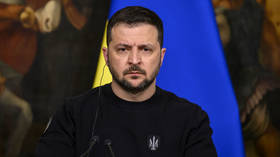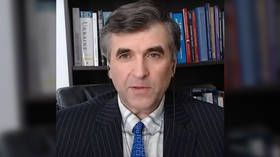‘Show me the money.’ Time for Brussels to put up or shut up on Ukraine
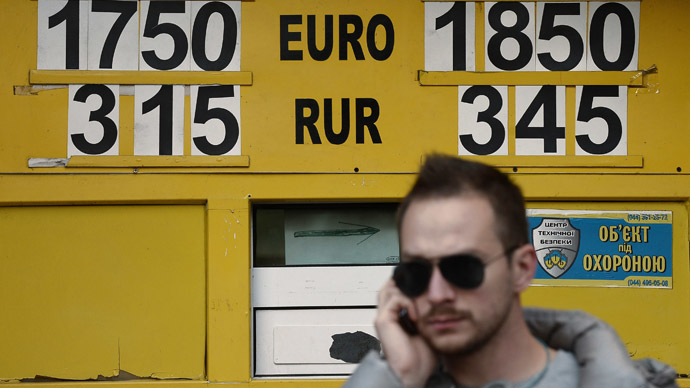
Ukraine’s parliamentary election results are in. While the outcome restores some much needed democratic legitimacy - the fractured state’s future is far from certain.
Almost a year since the first, peaceful, Maidan protests - before events in Kiev turned violent and anarchy took over - Ukraine finally has a new parliament. The US and EU “hailed (the) pro-West election outcome” according to Reuters while TASS has reported that Russia will “recognize the results.” After the turmoil of the last 12 months, anything approaching consensus from the rival factions circulating around Ukraine must be welcomed.
According to preliminary results, a certain amount of horse trading will now ensue as even the combined might of President Petro Poroshenko and outgoing Prime Minister Arseniy Yatsenyuk's parties fall short of an overall majority. It’s widely believed that Poroshenko will seek a constitutional majority (2/3rds) in order to enact anti-corruption legislation and other policies he has prioritized. With around 100 independents elected in single seat constituencies, that won’t be as straight forward as most observers had envisaged. After the euphoria of spring and summer, the hard slog starts now.
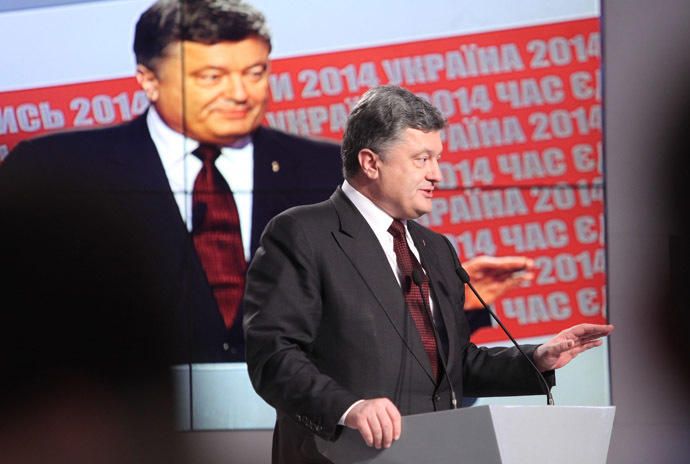
The anticipated far-right surge didn’t really happen. Between them, Svoboda, Right Sector and The Radical Party mustered around 13%. In the rest of Europe, such a result would be widely condemned and alarm bells would ring loudly but, given what’s happened this year in Ukraine, it’s almost a relief. Only the Radicals will enter parliament through the list system with a projected 22 seats while the other two will scrape around 7 from direct elections. That gives the “nutters” around 10 percent of the actual seats. While they won't wield much power, the infamous Rada fights should be more interesting, or alarming.
However, given that Yatsenyuk moved markedly to the right in recent months, it’s likely that his People’s Front hoovered up a fair amount of extremist votes. The hope is that Yatsenyuk was merely doing this for electoral advantage and doesn’t actually believe his own verbiage. If it's the former, the PM might have done everyone a huge favor - if the latter, it's time for a collective shudder.
How representative was the ballot of Ukrainian opinion? Oligarch Igor Kolomoisky’s television network claimed that turnout was 99.9 percent, but this was, obviously, a glitch. In reality, the figures were divided heavily by region.
In the western nationalist stronghold of Lviv, well over 70 percent exercised their franchise but in Russian-speaking Kherson it was around half.
Ukraine's snap parliamentary elections - infographics updated http://t.co/FB2AyGetX5pic.twitter.com/cW8f3TlMTe
— RIA Novosti (@ria_novosti) October 29, 2014
In previous elections, the west and east of the country were divided along party lines, this time most eastern voters didn’t bother to attend a polling station. Meanwhile, their western brethren enthusiastically embraced the process. This is worrying.
Among those who did vote in southern and eastern regions, Yuriy Boyko’s newly formed Opposition Bloc came from nowhere to perform stoutly. Yet, in Kiev and the west, they barely got a preference. The divisions might be less obvious than before, but they still exist. Boyko’s party won all constituencies in Kharkov and Lugansk and 8 from 9 in Zaporizhia. In Kolomoisky’s Dnepropetrovsk stronghold they took 10 from 17 and in Odessa 4 from 11, with Poroshenko’s faction gaining the other 7. Poroshenko also secured 6 from 7 in Nikolaev.
These results suggest that while Kiev and the west strongly support a European direction for Ukraine, the central, southern and eastern regions are not, remotely, as positive. The notion, propagated by most of the EU/US media, that all of Ukraine is united behind an EU dream is, patently, false. Under a “normal” future turnout, these regions would, presumably, deliver an even stronger anti-Western message.
However, without question, the pro-Western camp has done spectacularly well. If Ukraine’s economy received sufficient support from Washington and Brussels, they might even solidify their gains. Indeed, restive regions might, eventually, alter their stance and Ukraine could be firmly on the road to Europe. However, “if” has a long tail. The problem is that neither the US nor the EU has shown a willingness to deliver cartloads of cash to Kiev.
Indeed, on Tuesday, Ukraine’s outgoing finance minister, Alexander Shlapak, admitted that its “unlikely” that Kiev will receive the second tranche of a $17 billion IMF loan this year. It means that Ukraine has received only €760 million from the EU in 2014. This is peanuts. Kiev’s budget deficit is forecast to be around €15 billion.
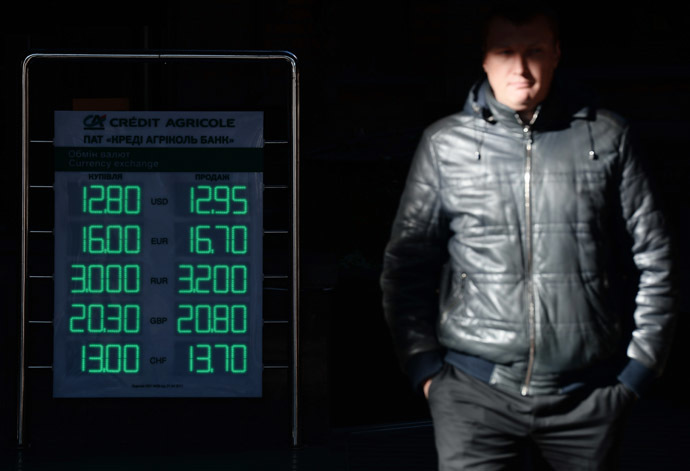
For context, Britain is currently fighting with the EU about €2.1 billion it owes and threatening to withhold it. London, for the record, hasn’t suggested sending it to Kiev either. With such infighting in the current union, Ukraine is at the back of the queue with its begging bowl. Brussels’ annual budget is €143 billion, meaning that despite all of the nice verbal support for Kiev this year, they’ve given around 0.5% to the embattled nation. If support for Ukraine is measured on Jerry Maguire’s “show me the money” metric, it would be charitable to describe it as “lousy.”
For Kiev to sustain support for its Western journey, it must deliver economic growth and raise living standards. Not in 5 or 10 years’ time, but now. The last time Ukraine had a “revolution” (remember, the Orange one) in 2004, all the same promises were made. Just a few years later, the “losers” of that revolt took power and that eventually led to the Maidan violence and subsequent civil war.
There is no doubt that the pro-Brussels movement is better organized this time (and better funded on the ground) but the hard work has only begun. Revolutions might be won with emotion but they are consolidated by cold, hard graft when everyone has sobered up. Ukraine's “morning after” is long overdue and the hangover will be humongous.
If Brussels is serious, really serious about bringing Ukraine into its tent, it’s going to require billions of euro. Not in loans, but in grants. Does the EU have the will? Or the money? We will know soon. I wouldn’t be optimistic.
The statements, views and opinions expressed in this column are solely those of the author and do not necessarily represent those of RT.
The statements, views and opinions expressed in this column are solely those of the author and do not necessarily represent those of RT.





